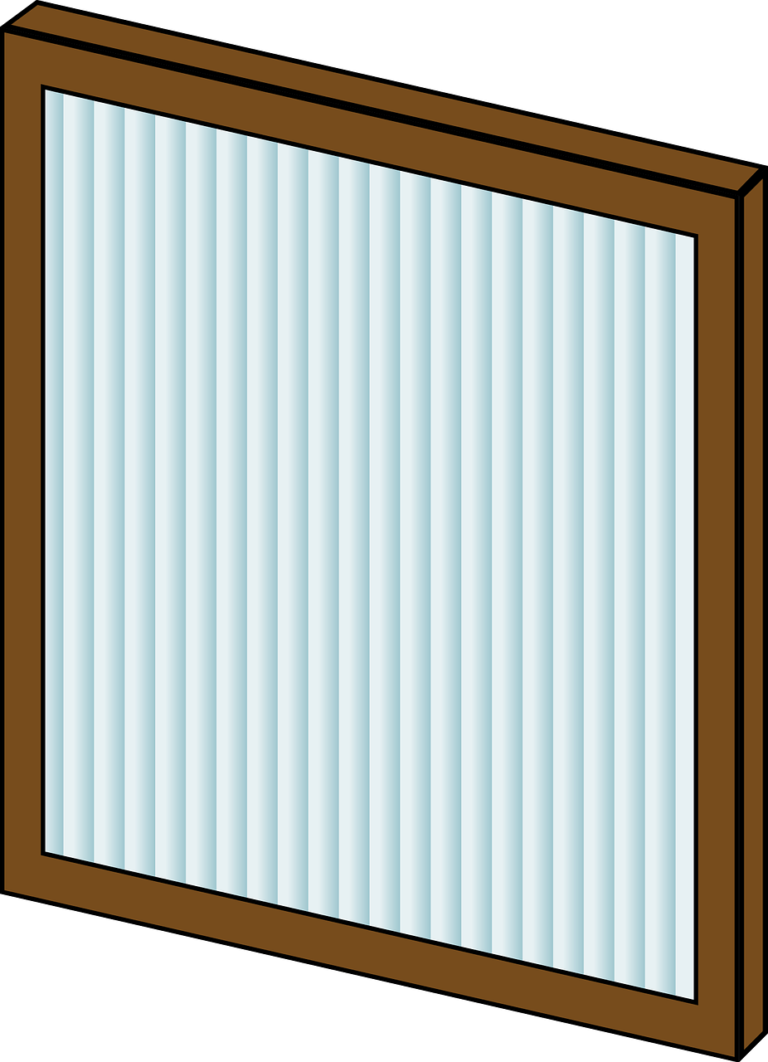HVAC Safety Tips for Central Florida Residents
As the Sunshine State embraces its warm climate, reliable HVAC systems are crucial for maintaining indoor comfort. However, ensuring safety is equally paramount. In this blog post, we’ll explore essential tips to help Central Florida residents avoid HVAC fires, protecting both their homes and well-being.
Maintaining a safe and comfortable home in Central Florida involves not only efficient cooling but also vigilant HVAC safety practices. Regular maintenance, proper installation, and a keen awareness of potential fire hazards contribute to a secure living environment. By following these tips, residents can enjoy the benefits of a reliable HVAC system while minimizing the risk of fires in their homes.
Regular Maintenance Checks
Regular maintenance checks are a crucial aspect of HVAC safety for Central Florida residents. The warm climate in the Sunshine State places increased demands on HVAC systems, making them more susceptible to wear and tear. Conducting routine checks on the system, including inspecting electrical components, cleaning or replacing air filters, and ensuring proper ventilation, can significantly reduce the risk of HVAC fires.
During maintenance checks, homeowners should pay special attention to any unusual noises, odors, or fluctuations in the system’s performance. Addressing potential issues promptly can prevent them from escalating into safety hazards. Moreover, regular cleaning of vents, ducts, and other components helps maintain optimal airflow, preventing overheating and reducing the risk of fire.
Engaging in preventive measures, such as tightening electrical connections and lubricating moving parts, enhances the overall safety and efficiency of the HVAC system. By incorporating regular maintenance into their routine, Central Florida residents not only extend the lifespan of their HVAC units but also create a safer indoor environment, minimizing the potential for fire hazards and ensuring a reliable and secure home climate.
Clean Air Filters
Ensuring clean air filters is a paramount safety tip for Central Florida residents looking to prevent HVAC fires. The warm and humid climate in Florida makes air filters more susceptible to collecting dust, debris, and contaminants, which can pose a fire risk if neglected.
Regularly cleaning or replacing air filters is a simple yet effective measure to maintain proper airflow and prevent the accumulation of flammable particles. Clogged or dirty filters can obstruct the normal operation of the HVAC system, leading to overheating and potential fire hazards. Additionally, clean air filters contribute to improved indoor air quality, enhancing the overall health and safety of residents.
Central Florida homeowners should adhere to a regular schedule for inspecting and cleaning or replacing air filters, especially during periods of heavy system usage. By prioritizing this routine maintenance task, residents not only reduce the risk of HVAC fires but also promote the efficient and safe operation of their systems, ensuring a secure and comfortable living environment.

Avoid Overloading Electrical Circuits
To mitigate the risk of HVAC fires in Central Florida, residents should prioritize avoiding the overloading of electrical circuits. The warm climate in the Sunshine State demands continuous operation of HVAC systems, putting electrical components under sustained stress. Overloaded circuits can lead to overheating and pose a serious fire hazard.
Homeowners should ensure that the electrical circuits supporting their HVAC units are designed to handle the system’s load. Consulting with a qualified electrician to assess the capacity of circuits and upgrading them if necessary is a proactive step in preventing potential fire risks. Additionally, residents should refrain from plugging multiple high-energy appliances into the same outlet to prevent circuit overloads.
Regular inspection of the HVAC unit’s electrical components, including wiring and connections, is crucial for identifying any signs of wear, damage, or potential hazards. Promptly addressing any issues discovered during inspections helps maintain the integrity of the electrical system, minimizing the likelihood of fire incidents.
By being vigilant about electrical safety and avoiding overloading circuits, Central Florida residents can safeguard their homes from HVAC-related fires, ensuring both comfort and security in their living spaces.
Inspect Wiring and Connections
Thoroughly inspecting HVAC system wiring and connections is a vital safety tip for Central Florida residents aiming to prevent HVAC fires. The warm and humid climate in Florida can contribute to accelerated wear and deterioration of electrical components, making regular inspections essential.
Residents should conduct visual checks for any signs of frayed or damaged wiring, loose connections, or exposed electrical components. Additionally, ensuring that all wiring is properly insulated and secured helps prevent potential fire hazards. If any issues are detected during inspections, homeowners should promptly engage the services of a qualified HVAC technician or electrician to address and rectify the problems.
Regular inspections should include a focus on the HVAC unit’s control panel, thermostat, and any wiring associated with the system. Addressing wiring and connection issues promptly not only reduces the risk of fire but also enhances the overall safety and efficiency of the HVAC system.
By incorporating routine inspections into their HVAC maintenance regimen, Central Florida residents can proactively identify and address potential electrical hazards, creating a secure indoor environment and minimizing the likelihood of HVAC-related fires.
Professional AC Installation and Repairs
Professional AC installation and repairs play a pivotal role in enhancing HVAC safety for Central Florida residents and mitigating the risk of fires. Improper installation and faulty repairs can lead to electrical and mechanical issues, posing serious safety hazards.
Engaging certified HVAC professionals for the installation of new systems or repairs ensures that the work meets industry standards and local building codes. Professionals are trained to assess the electrical components, wiring, and connections, identifying potential issues that could lead to fires if left unaddressed.
Additionally, professional technicians have the expertise to conduct thorough inspections during routine maintenance, identifying and rectifying any issues that might compromise the safety of the HVAC system. Regular professional maintenance helps prevent potential fire hazards by addressing wear and tear, lubricating moving parts, and ensuring optimal system performance.
Investing in professional AC installation and repairs not only ensures the proper functioning of the HVAC system but also provides Central Florida residents with peace of mind, knowing that their systems are installed and maintained with safety as a top priority. By prioritizing professional expertise, homeowners contribute to a secure and comfortable living environment while minimizing the risk of HVAC-related fires.
Clear Surrounding Debris
Clearing surrounding debris is a crucial safety tip for Central Florida residents aiming to prevent HVAC fires. The warm and humid climate in Florida can lead to the accumulation of leaves, vegetation, and other debris around the outdoor HVAC unit, potentially creating fire hazards.
Regularly inspecting the area around the HVAC unit and clearing away any debris is a simple yet effective measure to maintain a safe operating environment. Accumulated debris can hinder proper airflow, causing the system to overheat and increasing the risk of fires. Additionally, combustible materials near the unit can pose a direct threat to safety.
Homeowners should ensure that there is a clear and unobstructed space around the HVAC unit, allowing for proper ventilation and preventing potential fire hazards. Regular yard maintenance, especially during seasons with increased vegetation shedding, is essential to minimize the risk of debris accumulation.
By adopting this preventive measure, Central Florida residents not only enhance the safety of their HVAC systems but also contribute to the overall well-being of their homes. Creating a clear and debris-free space around the outdoor unit is a proactive step toward preventing fire incidents and ensuring a secure indoor environment.
Invest in Smoke and Carbon Monoxide Detectors
Investing in smoke and carbon monoxide detectors is a crucial safety measure for Central Florida residents to avoid HVAC fires. These detectors serve as early warning systems, providing an alert in the event of potential fire or the release of harmful gases like carbon monoxide.
Smoke detectors should be strategically placed throughout the home, with a specific focus on areas near the HVAC system. In case of any electrical or mechanical issues leading to smoke, the detectors can quickly notify residents, allowing for prompt action to prevent further escalation.
Carbon monoxide detectors are equally important, especially as HVAC systems may involve combustion processes. Malfunctions or blockages in the system can lead to the release of carbon monoxide, a colorless and odorless gas that poses severe health risks. Detectors specifically designed to identify carbon monoxide provide an additional layer of safety, alerting residents to potential dangers.
Regularly testing and maintaining these detectors, including checking batteries and replacing them as needed, ensures their reliability. Homeowners should also familiarize themselves with the alarm sounds and take immediate action if an alarm is triggered.
By investing in smoke and carbon monoxide detectors, Central Florida residents can significantly enhance the safety of their homes, offering peace of mind and swift response capabilities in the event of any HVAC-related emergencies.
Emergency Shut-Off Switch
An emergency shut-off switch is a critical component for HVAC safety in Central Florida, providing homeowners with a quick and effective means to respond to potential fire hazards. This switch is designed to immediately cut off power to the HVAC system in case of an emergency, allowing for swift intervention and preventing further escalation.
Installing an emergency shut-off switch near the HVAC unit enables residents to rapidly disconnect power in the event of smoke, unusual odors, or other signs of potential fire. This immediate response can be crucial in averting more extensive damage and ensuring the safety of the home.
Homeowners should familiarize themselves with the location of the emergency shut-off switch and regularly test its functionality. In case of an emergency, activating the switch should be a priority before contacting emergency services or HVAC professionals for assistance.
The emergency shut-off switch acts as a proactive safety measure, empowering residents to take swift action in critical situations. By incorporating this feature into their HVAC systems, Central Florida residents contribute to a safer living environment, reducing the risk of fires and ensuring the well-being of their homes.

